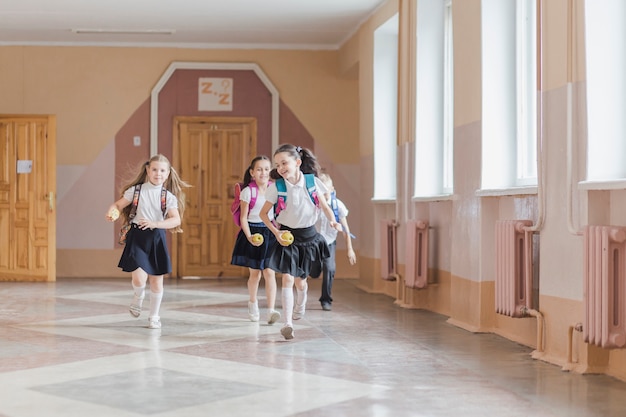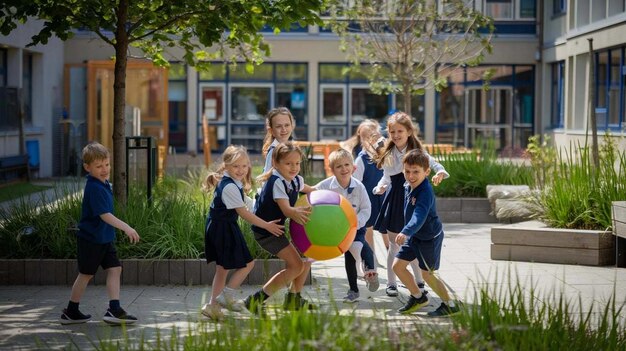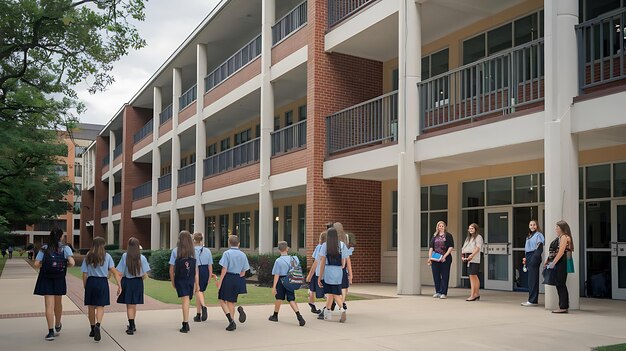The Journey of Growth Starts with Quality Education
A strong start in education equips children with the tools they need to succeed academically and personally. Early learning experiences influence cognitive development, emotional growth, and social skills. Programs that encourage creativity, critical thinking, and curiosity help children explore the world confidently. When learners engage with interactive activities and guided instruction, they develop problem-solving abilities and a love for discovery. A supportive environment fosters resilience, adaptability, and confidence, preparing students to embrace challenges and thrive throughout their academic journey.
Choosing the Right School Environment
Selecting an institution that prioritizes holistic development is essential for young learners. Many parents find that school in Kengeri provide structured academic programs while emphasizing extracurricular and social activities. These schools focus on nurturing essential life skills, encouraging children to communicate effectively, collaborate with peers, and develop self-confidence. By combining learning with interactive play, students gain a balanced approach that enhances both academic performance and personal growth. The supportive environment allows children to explore their interests and develop a sense of independence, preparing them for future educational challenges.
Encouraging Curiosity and Exploration
Active engagement in learning helps children connect concepts to real-world applications. Experiential learning, including hands-on activities, experiments, and group projects, fosters critical thinking and problem-solving abilities. At schools in Kengerii, educators emphasize inquiry-based methods, guiding students to ask questions and seek understanding while exploring topics creatively. This approach helps learners retain information effectively and develop analytical skills. Encouraging curiosity early in education cultivates a lifelong passion for learning and prepares children to approach challenges with a sense of wonder and determination.
Supporting Emotional and Social Growth
Social and emotional intelligence plays a vital role in overall development. Schools that promote teamwork, empathy, and communication help children navigate relationships and develop resilience. Structured group activities, cooperative projects, and classroom discussions allow students to express themselves and understand others’ perspectives. A nurturing environment supports positive interactions, building self-confidence and interpersonal skills. When children feel valued and understood, they develop emotional stability, which strengthens academic performance and enhances their ability to collaborate effectively with peers throughout their school years.

Enhancing Cognitive and Motor Skills
Cognitive and motor development are crucial components of early education. Activities such as puzzles, creative exercises, and movement-based learning stimulate both intellectual and physical growth. By integrating problem-solving tasks and fine motor exercises, students develop memory, focus, and coordination. Schools provide routines that balance structured learning with exploratory activities, ensuring children develop essential skills in multiple domains. Engaging in a variety of exercises promotes independent thinking, enhances concentration, and prepares students to tackle more advanced academic challenges confidently.
Fostering Creativity and Imagination
Creativity enhances problem-solving, self-expression, and innovation. Schools integrate music, art, storytelling, and role-playing to encourage imaginative thinking. At schools in Kengeri, educators design programs that allow students to experiment and express themselves in unique ways while reinforcing key academic concepts. Encouraging creative expression helps learners develop confidence and critical thinking skills. It also inspires them to approach challenges with flexibility, curiosity, and a willingness to explore multiple solutions, which is essential for both academic and personal growth.
Cultivating Lifelong Learning Habits
Instilling a love for learning from an early age helps children remain engaged and curious throughout their education. By combining structured lessons with hands-on activities, schools provide experiences that reinforce knowledge retention and critical thinking. Parents can also explore learning tips provided by educators to support learning at home. Encouraging independent exploration and fostering intellectual curiosity strengthens problem-solving abilities and motivation. This early focus on developing self-directed learners ensures children are prepared to take ownership of their education and adapt to new challenges confidently.

Guiding Parents with Practical Advice
Parental involvement is critical to complement classroom learning. Teachers often share guidance and strategies to help families support children’s academic and social growth. Incorporating activities such as reading together, creative play, and observation-based exercises reinforces lessons learned at school. Educators may also recommend tools or resources that extend learning opportunities, encouraging children to apply concepts creatively. Parents who actively engage in their child’s development help build confidence, resilience, and curiosity, creating a supportive environment that encourages continuous exploration and skill-building. Families can also read more articles provided by schools to stay updated on best practices in early education.
Preparing Students for Future Academic Success
A comprehensive early education program prepares students for higher learning levels by equipping them with foundational skills. Children develop focus, time management, social interaction, and problem-solving abilities through structured and interactive experiences. Exposure to collaborative projects, inquiry-based learning, and guided instruction ensures they are adaptable and confident when facing new academic challenges. By fostering both intellectual and personal growth, schools provide students with the tools to succeed academically, socially, and emotionally. These early experiences create a strong base for continuous learning and achievement in later grades.
Inspiring Confidence and a Joy for Learning
A positive learning environment encourages children to explore their interests, take risks, and express themselves freely. When students associate learning with joy and discovery, they develop intrinsic motivation and resilience. Balanced instruction that combines guidance with play fosters curiosity, creativity, and independence. Early educational programs cultivate not only academic competence but also emotional intelligence, social skills, and self-confidence. Children who experience such nurturing environments are well-prepared to approach future challenges with optimism, adaptability, and a love for lifelong learning.

